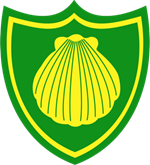Child Exploitation - spotting the signs
Criminal exploitation is child abuse where children and young people are manipulated and coerced into committing crimes. This can be through County Lines or criminal gangs and is both a local and national issue.
Children and young people involved with gangs and criminal exploitation need help and support. They might be victims of violence or pressured into doing things like stealing or carrying drugs or weapons. They might be abused, exploited and put into dangerous situations.
The NSPCC has advice about what to do if a child is being groomed to join or has already joined a gang.
Worried about a child?
Contact our Helpline by calling 0808 800 5000 or emailing help@NSPCC.org.uk.
What is a gang?
The word ‘gang’ means different things in different contexts, the government in their paper ‘Safeguarding children and young people who may be affected by gang activity’ distinguishes between peer groups, street gangs and organised criminal gangs.1
- Peer group
A relatively small and transient social grouping which may or may not describe themselves as a gang depending on the context. - Street gang
“Groups of young people who see themselves (and are seen by others) as a discernible group for whom crime and violence is integral to the group's identity.” - Organised criminal gangs
“A group of individuals for whom involvement in crime is for personal gain (financial or otherwise). For most crime is their 'occupation.”
It's not illegal for a young person to be in a gang – there are different types of ‘gang’ and not every ‘gang’ is criminal or dangerous. However, gang membership can be linked to illegal activity, particularly organised criminal gangs involved in trafficking, drug dealing and violent crime.
What is County Lines?
County Lines is the police term for urban gangs exploiting young people into moving drugs from a hub, normally a large city, into other markets - suburban areas and market and coastal towns - using dedicated mobile phone lines or “deal lines”. Children as young as 12 years old have been exploited into carrying drugs for gangs. This can involve children being trafficked away from their home area, staying in accommodation and selling and manufacturing drugs. This can include:
- Airbnb and short term private rental properties
- budget hotels
- the home of a drug user, or other vulnerable person, that is taken over by a criminal gang- this may be referred to as cuckooing.
How are young people recruited?
A child or young person might be recruited into a gang because of where they live or because of who their family is. They might join because they don’t see another option or because they feel like they need protection. Children and young people may become involved in gangs for many reasons, including:
-
- peer pressure and wanting to fit in with their friends
- they feel respected and important
- they want to feel protected from other gangs, or bullies
- they want to make money, and are promised rewards
- they want to gain status, and feel powerful
- they’ve been excluded from school and don’t feel they have a future
Organised criminal gangs groom children and young people because they’re less suspicious and are given lighter sentences than adults.
Studies show that a child is more at risk of being recruited if:
- they’ve been excluded from school
- they have special education needs
- there are problems at home like neglect, domestic abuse or sexual abuse
- they have problems with their mental health
- they live in existing gang territory
If you’re worried a child or young person is being groomed for criminal exploitation or to join a gang, contact our helpline immediately. Our trained counsellors can signpost you to local services and provide professional advice
Signs of criminal exploitation
There are some signs to look out for if you’re worried a child or young person has joined a gang, or is being criminally exploited. It might be hard to spot at first, but the sooner you’re able to talk to the young person the more you’ll be able to help them.
- Frequently absent from and doing badly in school.
- Going missing from home, staying out late and travelling for unexplained reasons.
- In a relationship or hanging out with someone older than them.
- Being angry, aggressive or violent.
- Being isolated or withdrawn.
- Having unexplained money and buying new things.
- Wearing clothes or accessories in gang colours or getting tattoos.
- Using new slang words.
- Spending more time on social media and being secretive about time online.
- Making more calls or sending more texts, possibly on a new phone or phones.
- Self-harming and feeling emotionally unwell.
- Taking drugs and abusing alcohol.
- Committing petty crimes like shop lifting or vandalism.
- Unexplained injuries and refusing to seek medical help.
- Carrying weapons or having a dangerous breed of dog
For further information, please go to the NSPCC website or talk to the Safeguarding Team.
NSPCC - spotting the signs of Child Exploitation
